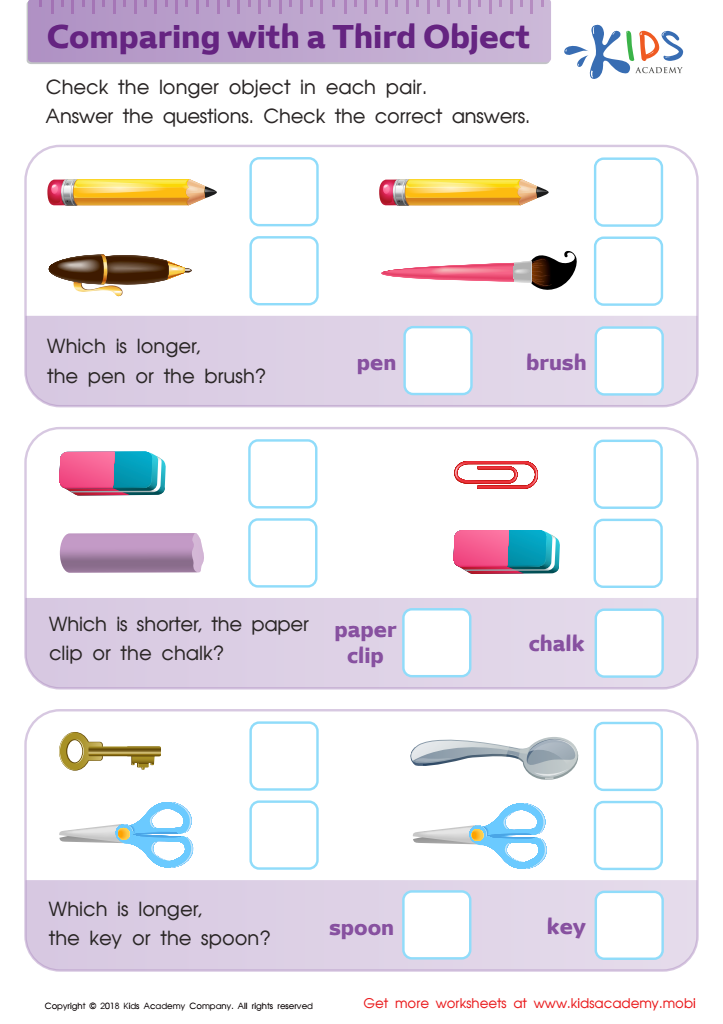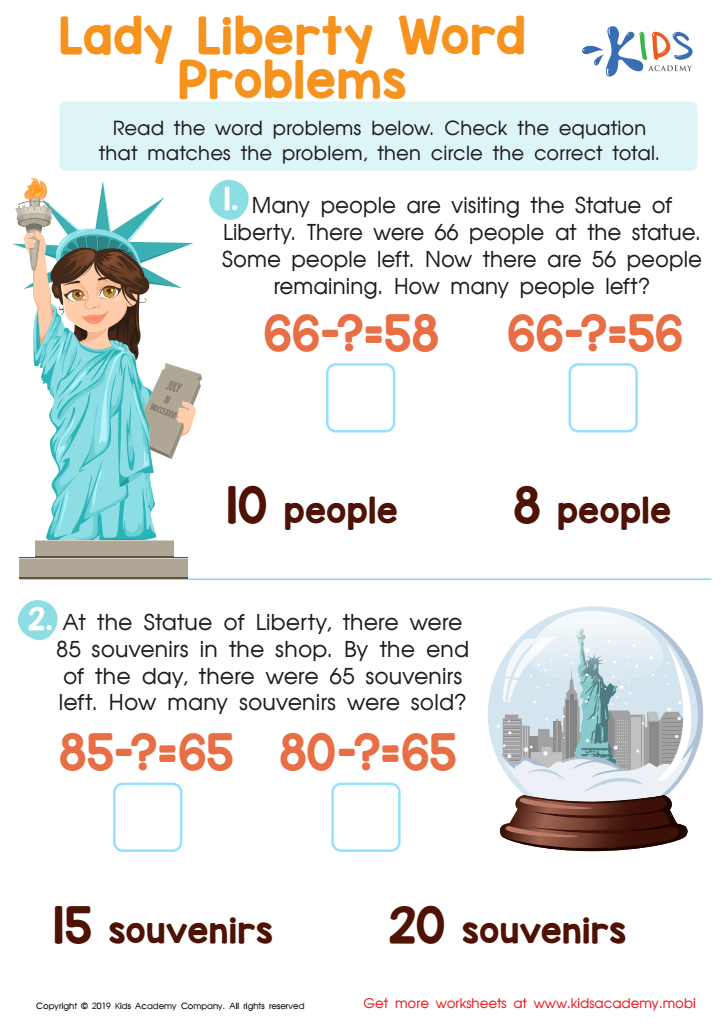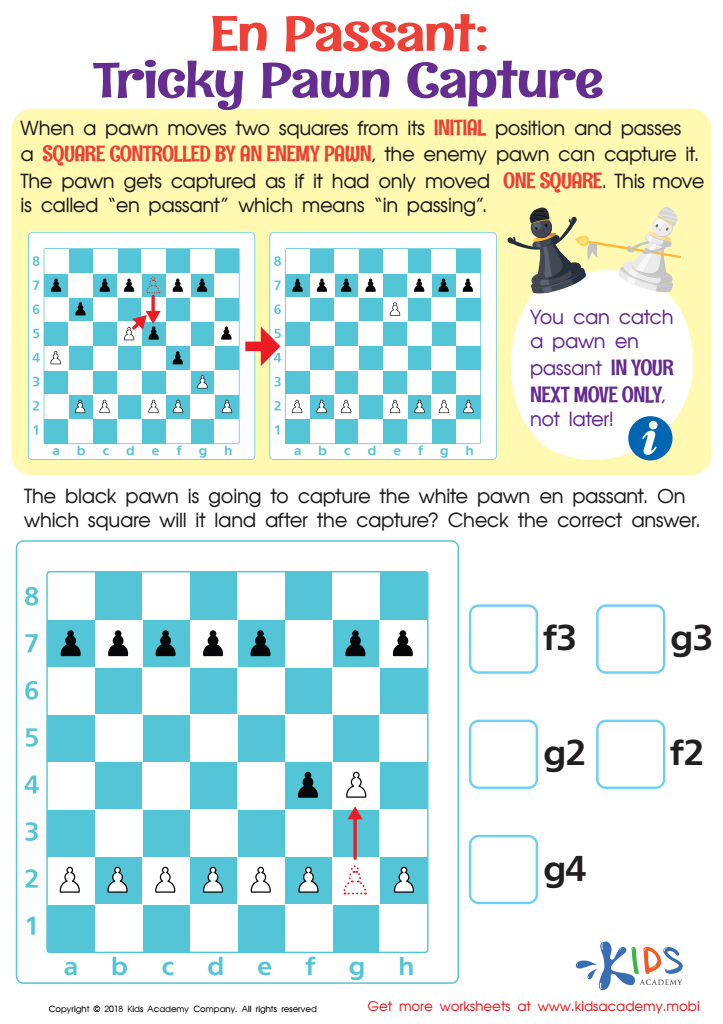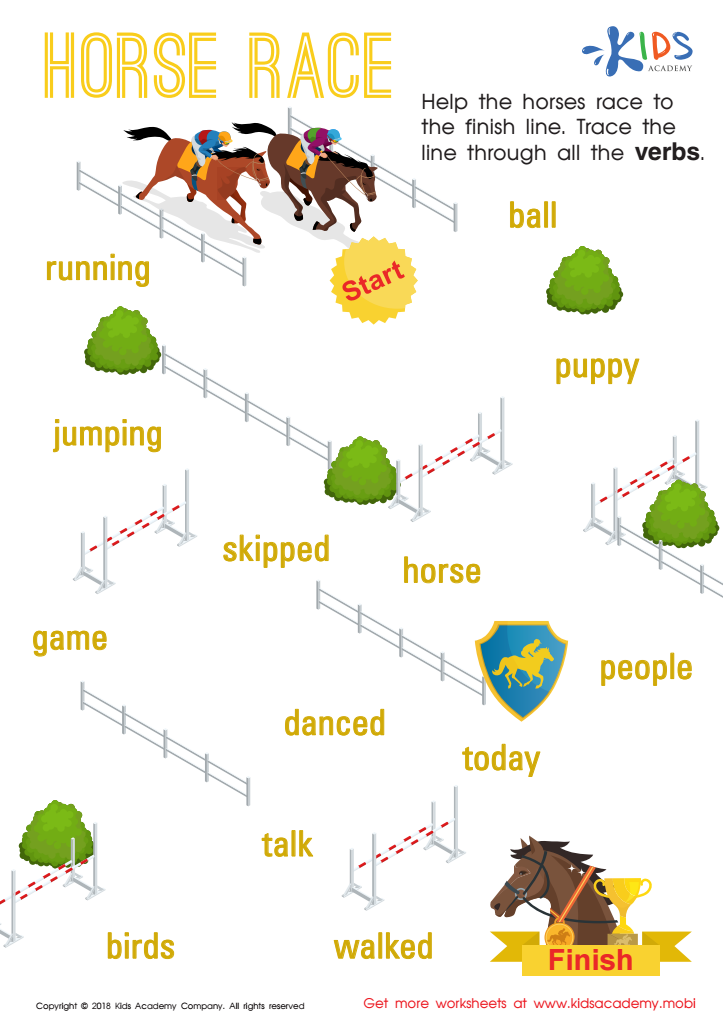Improving analytical skills Worksheets for Ages 6-9
5 filtered results
-
From - To
Unlock your child's potential with our "Improving Analytical Skills Worksheets for Ages 6-9." Our expertly designed resources focus on enhancing problem-solving, logical thinking, and critical analysis abilities. Each worksheet is engaging and age-appropriate, seamlessly combining fun with learning to keep kids motivated. They're perfect for classrooms, homeschooling, or supplemental practice. Help your child build essential skills for their academic journey and beyond. Dive into a world where learning meets enjoyment and watch your child's confidence and capabilities soar. Visit us at Kids Academy to explore our comprehensive collection and start the journey today!


Comparing with a Third Object Worksheet


Lady Liberty Worksheet


En Passant: Tricky Pawn Capture Worksheet


Horse Race Worksheet
Improving analytical skills in children aged 6-9 is crucial for several reasons. First, fostering analytical thinking at a young age helps build a strong foundation for problem-solving abilities. Children who can analyze situations effectively are better equipped to navigate challenges both in school and daily life. This improved problem-solving ability translates to better academic performance, as analytical skills are essential for subjects like math, science, and even reading comprehension.
Additionally, developing analytical skills enhances a child's ability to think critically. This means they can evaluate information, differentiate between fact and opinion, and make informed decisions. In an age where children are constantly bombarded with information, being able to assess data critically is an invaluable asset.
Socially, analytical skills enable children to understand various perspectives, leading to better empathy and communication. They learn to ask relevant questions, actively listen, and consider the viewpoints of others, which enhances their interpersonal relationships.
Moreover, children who develop strong analytical skills early on gain confidence in their ability to tackle complex tasks. This self-assurance boosts their overall emotional resilience and willingness to take on new challenges, setting them up for long-term success.
In conclusion, improving analytical skills in young children is not only about academic achievement; it's about equipping them with the tools they need for lifelong intellectual growth, effective communication, and personal development.
 Assign to My Students
Assign to My Students










.jpg)










